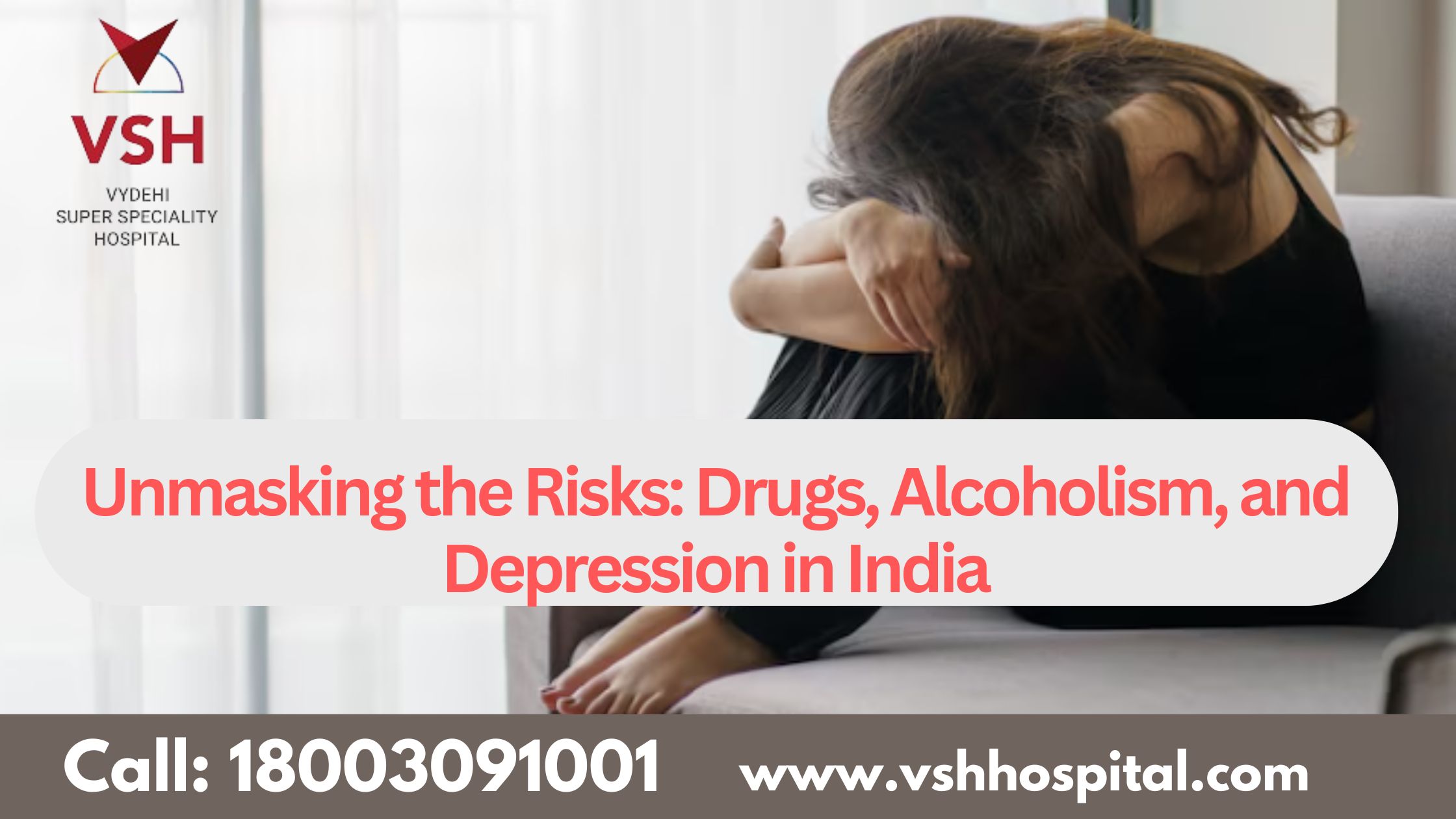
Unmasking the Risks: Drugs, Alcoholism, and Depression in India
The Allure and the Danger: Exploring Recreational Drugs in India
The allure of recreational drugs is undeniable, but the consequences can be far-reaching. In India, where millions struggle with substance abuse, understanding the dangers and seeking help is crucial. This blog delves into the realities of recreational drug use, its impact, and the path toward a healthier future.
The Growing Trend: A Nation Grappling with Substance Abuse
Statistics paint a concerning picture:
- 14.6% of Indians aged 12-60 consume alcohol, while 2.83% and 2.1% use cannabis and opiates, respectively. (Ministry of Social Justice & Empowerment, 2018)
- Alcohol often accompanies other drug use, further amplifying the risks. (National Institute of Mental Health and Neurosciences, 2015)
- Drug abuse transcends urban areas, impacting diverse demographics across India.
Understanding the Risks
Demystifying the Terminology and A Spectrum of Substances: What are Recreational Drugs?
These substances, often used for pleasure or experimentation, can alter mood, perception, and behavior. Examples include:
- Cannabis: THC, its psychoactive compound, can impair memory, learning, and coordination. It is available in many forms such as charas, ganja, bong, CBD, etc.
- MDMA (Ecstasy): This stimulant increases emotional intensity and poses risks to heart health and body temperature regulation.
- Cocaine: Highly addictive, it can cause intense pleasure followed by crashes, anxiety, and paranoia.
- LSD (Acid): This hallucinogen alters perception and can trigger unpredictable psychological reactions.
- Mushrooms (Psilocybin): Hallucinogenic effects vary, potentially leading to anxiety and even psychosis.
- Prescription Drugs: Misusing prescription medications like cough syrups and stimulants like iodine is dangerous and can lead to dependence.
- Synthetic Drugs: Often unregulated and unpredictable, these pose serious health risks due to unknown ingredients and effects.
From Curiosity to Consequences: Effects on Body and Mind
Beyond the High
The consequences can be both short-term and long-term.
Short-term effects and consequences are:
- Impaired judgment, coordination, and reaction time.
- Increased heart rate, blood pressure, and body temperature.
- Anxiety, paranoia, and hallucinations.
- Nausea, vomiting, and other physical discomfort.
Long-Term Effects and Consequences are:
- Addiction and dependence.
- Increased risk of mental health disorders like depression and psychosis.
- Damage to the brain, liver, heart, and other organs.
- Social and legal problems.
- Suicidal ideation is also another consequence.
Breaking Free
Lifestyle Changes for Lasting Recovery
- Healthy diet and exercise: Nourish your body and mind for optimal well-being.
- Positive social activities: Surround yourself with supportive individuals who encourage growth.
- Stress management: Develop healthy coping mechanisms to deal with challenges.
- Building a strong support network: Connect with others who understand your journey.
Seeking Professional Help: Choosing a Healthier Path
VSH Hospital’s internal medicine department offers comprehensive treatment programs for substance abuse, including:
- Detoxification: Medically supervised withdrawal process to manage discomfort and cravings.
- Therapy: Individual and group therapy to address underlying issues and develop coping skills.
- Medication management: When necessary, medications can aid in recovery and manage co-occurring conditions.
- Relapse prevention: Learn strategies to maintain sobriety and navigate triggers effectively.
Remember, you’re not alone. VSH Hospital stands with you on your journey to a healthier, drug-free life. Call us today for a confidential consultation and take the first step towards a brighter future.
Frequently Asked Questions
1. What are 10 commonly used drugs?
Ans: It’s important to note that drug use can be incredibly dangerous, and this list is not intended to promote or encourage drug use in any way. However, to raise awareness and provide information, here are 10 commonly used drugs, categorized by their general effects:
Depressants:
- Alcohol: Impairs coordination, judgment, and brain function.
- Prescription opioids: Used for pain management, but highly addictive and can lead to overdose.
- Benzodiazepines: Anti-anxiety medications with potential for dependence and misuse.
Stimulants:
- Cocaine: Highly addictive, causing intense pleasure followed by crashes, anxiety, and paranoia.
- Methamphetamine: Highly addictive stimulant with severe negative effects on the brain and body.
- Adderall/Ritalin: Prescription stimulants used for ADHD, but misused for their focus-enhancing effects.
Hallucinogens:
- LSD (Acid): Alters perception and can trigger unpredictable psychological reactions.
- Mushrooms (Psilocybin): Hallucinogenic effects vary, potentially leading to anxiety and even psychosis.
- Other:
- Cannabis: THC, its psychoactive compound, can impair memory, learning, and coordination.
- Synthetic drugs (e.g., Spice): Often unregulated and unpredictable, posing serious health risks.
Remember: This list is not exhaustive, and any drug use can have harmful consequences. If you or someone you know is struggling with substance abuse, please seek professional help.
2. What are 3 worst effects of alcoholism?
Ans: Alcoholism, a chronic and severe dependence on alcohol, can have devastating effects on individuals and their loved ones. Here are 3 of the worst consequences:
- Health complications: Alcohol damages various organs, including the liver, brain, heart, and pancreas, leading to chronic diseases and even death.
- Mental health issues: Alcoholism can trigger or worsen depression, anxiety, and other mental health disorders, creating a vicious cycle.
- Social and legal problems: Alcoholism can damage relationships, lead to job loss, and result in legal trouble due to impaired driving or other alcohol-related incidents.
3. What are the top 3 symptoms of depression?
Ans: Depression is a common mental health condition characterized by persistent low mood and loss of interest in activities. While symptoms vary, here are 3 of the most common:
- Persistent sadness, emptiness, or hopelessness: This feeling may last most of the day, nearly every day.
- Loss of interest or pleasure in activities once enjoyed: This can include hobbies, social interactions, or even sex.
- Changes in appetite or sleep: Significant weight loss or gain, or difficulty sleeping or sleeping excessively, can be signs of depression.
To Read More : https://vshhospital.com/blog/












